In the Footsteps of St. Paul: A Pilgrimage...
Trace St. Paul the Apostle’s journey...
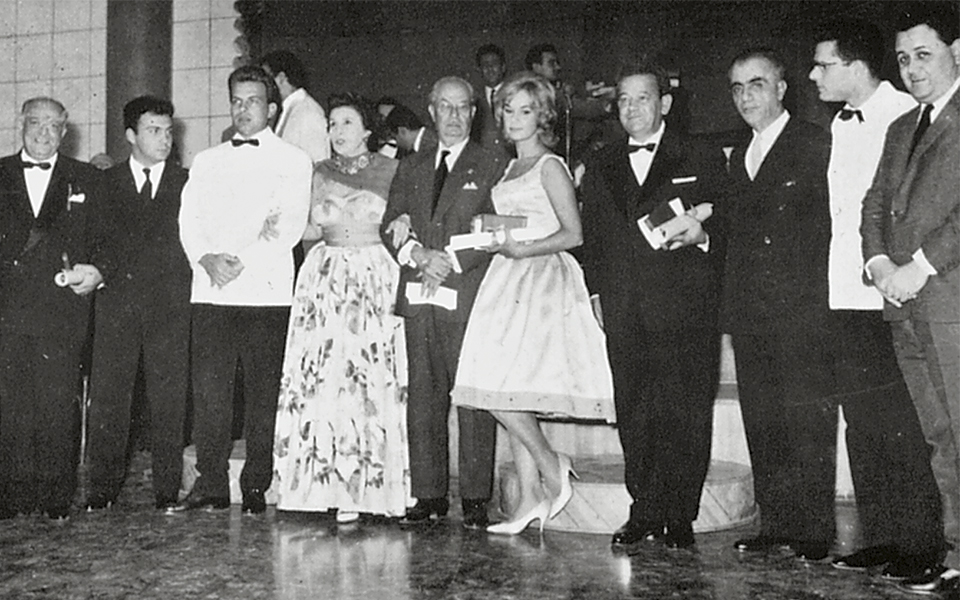
Winners of the first Greek Cinema Week.
The first Greek Cinema Week is held, September 20-26, at the Olympion Cinema.
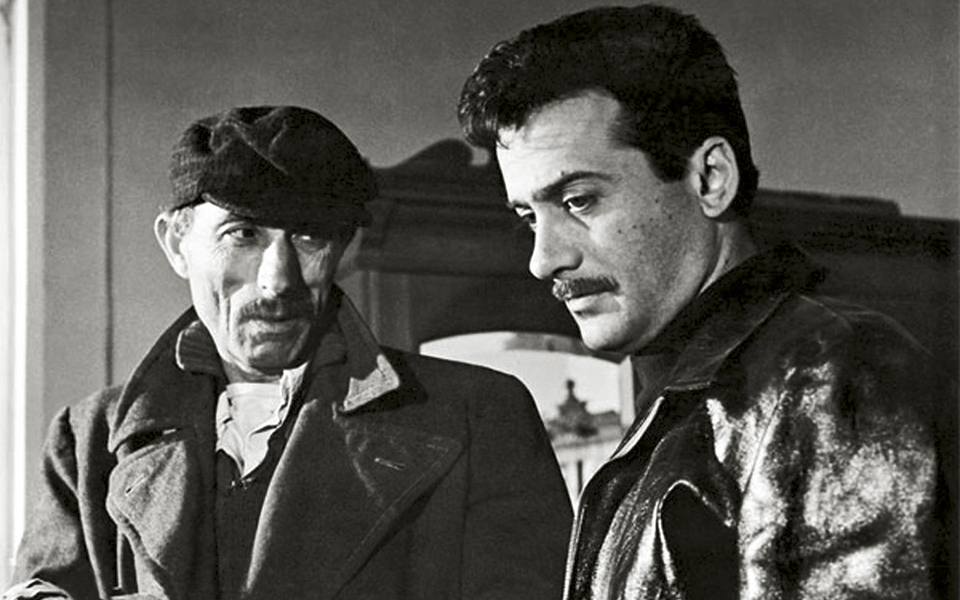
Manos Katrakis and Alekos Alexandrakis in Dream Neighborhood, a 1961 Greek neorealist masterpiece.
A few foreign films are added to the program, but outside the competition. Controversy erupts after Mikis Theodorakis does not win – because of his left-wing politics – for the score of Alekos Alexandrakis’ Synoikia To Oneiro (Dream neighborhood), a film about a poor neighborhood in Athens which was screened in its censored version. The Best Director award goes to Michael Cacoyannis for Eroica.
The fifth installment of Greek Cinema Week moves to the Macedonian Studies Society (which also housed the National Theater of Northern Greece) and stays there for the next 32 years. It is a glamorous event, with scantily clad starlets and VIP guests that include the reigning Miss Universe Korina Tsopei and Stathis Giallelis, an emerging talent and the star of Elia Kazan’s America, America.
The “Week” is renamed a “Festival.”
The April military coup casts a pall over proceedings, but the festival perseveres.
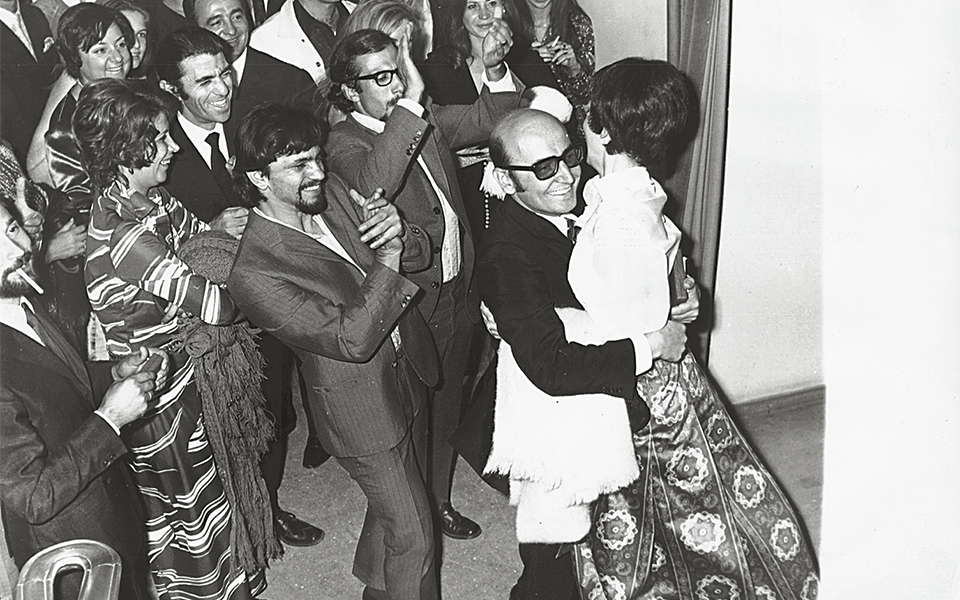
Director, star and associates celebrating the 1971 triumph of the film Reconstruction.
The screening of Theo Angelopoulos’ Anaparastasi (Reconstruction) signals the birth of the New Greek Cinema movement.
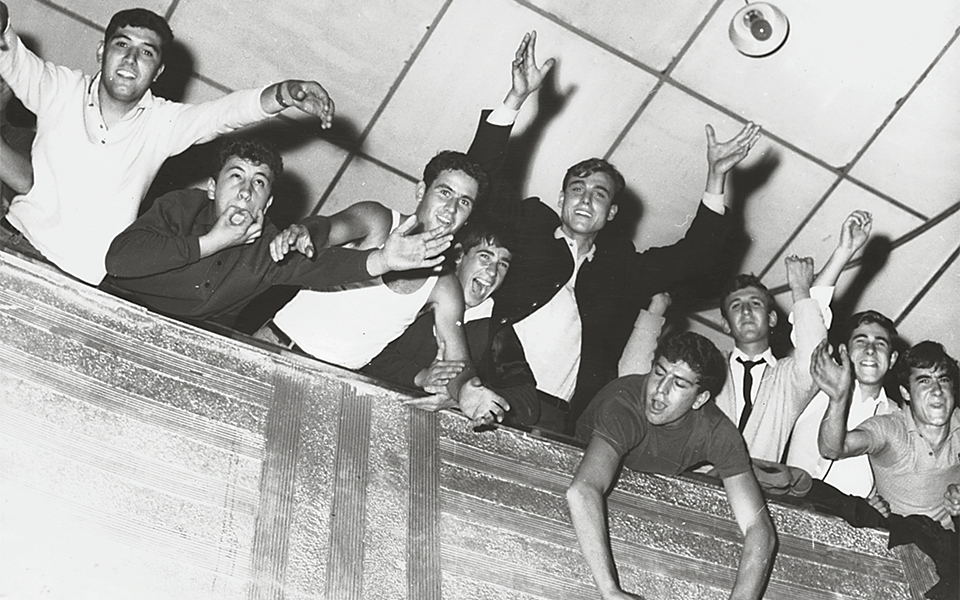
Cheering and booing from the festival’s notorious balcony.
Anti-junta sentiment overshadows the event after protests break out in the theater’s second balcony; this “audience power” goes on to become a significant part of the festival for more than 15 years. The introduction of discounted tickets for students sees youth attendance skyrocket and, while this initially results in an active new voice participating in the event; this involvement soon degenerates into rowdy behavior, particularly in the late 1980s, dealing a serious blow to the festival’s stature and reputation.
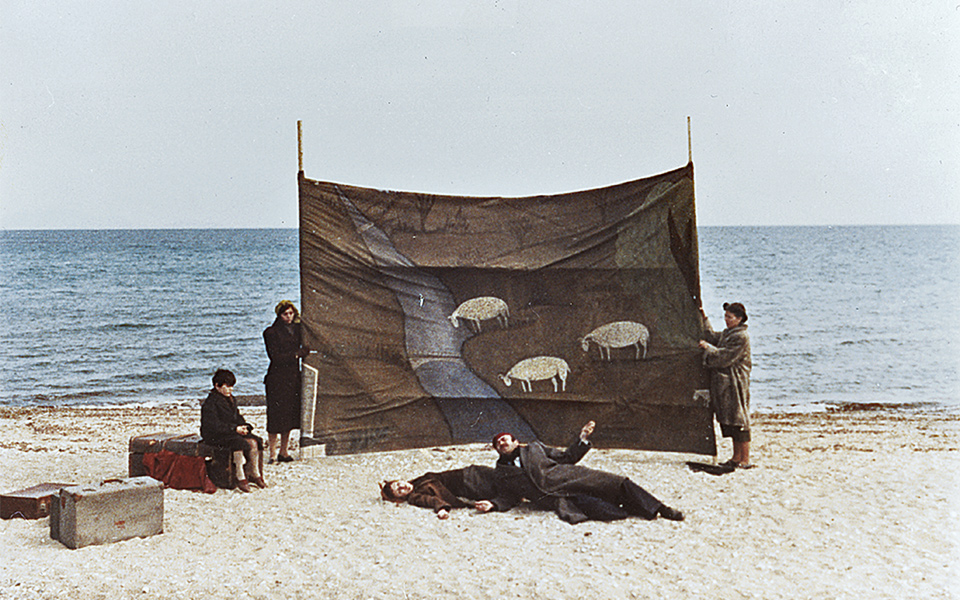
A still from The Traveling Players, Theo Angelopoulos’ masterpiece that won 7 awards in 1975.
With the restoration of democracy to Greece, this edition of the festival is the most political to date. Fans spend the night lined up outside the box offce waiting for tickets to Theo Angelopoulos’ O Thiasos (The Traveling Players), in which the members of a traveling ensemble experience the turbulence of a key period in Greek history (1939-1952). This now-classic film garnered numerous festival prizes and has been included in the list of the best films in the history of cinema, compiled by FIPRESCI (The International Federation of Film Critics).
The festival turns 30 in the midst of a major crisis. The committee of judges decides not to bestow a Best Picture, Best Director or Best Screenplay award.
The Thessaloniki International Film Festival is born under the leadership of artistic director Michel Dimopoulos and with Dimitris Eipides in charge of the parallel New Horizons program, an initiative that is instrumental in establishing the event’s international credentials. There are separate competition sections for Greek and foreign films.
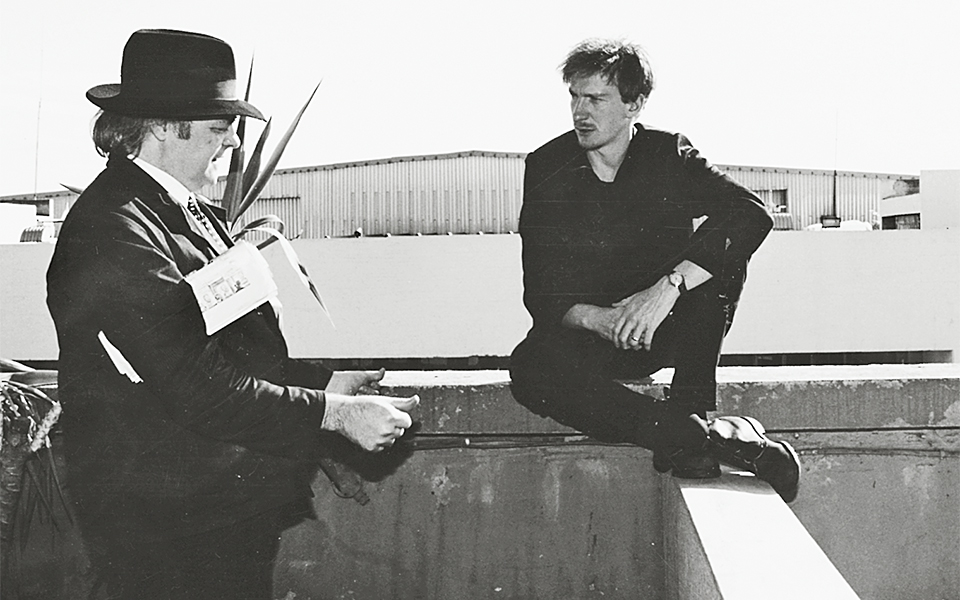
David Thewlis, the star of Mike Leigh’s Naked, attended the 1993 TIFF.
The Greek Competition section is abolished and is replaced by the Panorama of Greek Cinema, a move which leads to the establishment of the Greek State Quality Film Awards.
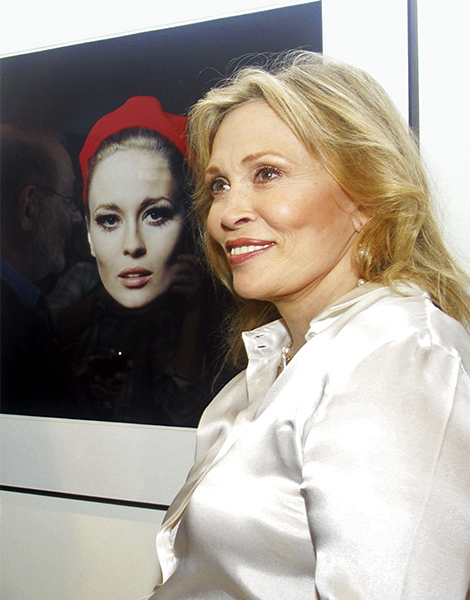
Faye Dunaway was honored for her career in film at the 42nd Thessaloniki Film Festival.
Dimitris Eipides creates the highly successful Thessaloniki International Documentary Festival, which takes place every March.
Festival Director Despina Mouzaki creates the Agora Film Market which, together with the Crossroads Co-Production Forum, becomes the developmental department of the festival, helping producers and distributors come together in support of the “cinema of tomorrow.” Over time, the Agora Film Market assumes a central role in the international aspects of the festival, developing cooperative links with the Festival de Cannes and the Lucerne International Film Festival, as well as with the Council of Europe fund, Eurimages.
Trace St. Paul the Apostle’s journey...
Where dusk, movement, and memory meet,...
The Thessaloniki-born winemaker welcomes us to...
A brave history and uniquely beautiful...